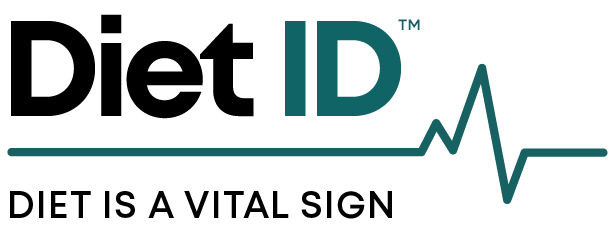As anxiety and stress mount for a millions of people already racked with fear and uncertainty, it’s more important than ever before to keep ourselves healthy. And we know that nutrition plays a significant role in our health and risk of illness.
So why, in this time of all times, are so many people turning to processed/junk/comfort foods?
According to a recent story in the New York Times, people are panic buying, stockpiling, and seeking out foods they associate with comfort or nostalgia, such as staples and treats from their childhood. Sales of Campbell’s soup, for example, increased 59 percent from last year, Prego sauce 52 percent, and Goldfish crackers 23 percent. Stocks are up for companies like Conagra, which sells mainly processed foods, even as the stock market is more depressed overall than it’s been in decades.
Refined carbohydrate-heavy foods like pasta, bread, and desserts like cake and ice cream are popular go-to’s, leading to what Dr. Joshua Levitt—naturopathic doctor at Whole Health in Hamden, CT—calls the “quarantine fifteen.” Levitt is seeing a weight gain trend in his patients who are cooped up at home and indulging in comfort foods to self-soothe.
“People turn to comfort foods during times of stress in an effort to self-medicate,” he says. “Unfortunately, comfort foods, especially those loaded with sugar, fat, sodium, additives, and preservatives, are not the right prescription.” Levitt goes on to explain just why they don’t work in the long term. “Studies have shown that consuming comfort foods provide only a fleeting sense of comfort...at best. Second, they have bad side effects. The regular consumption of many of the so-called "comfort" foods is strongly linked to obesity, cardiovascular risk, diabetes, and increased risk of many cancers. And that's not too comforting!” Experts tell us that such conditions increase risk of complications among people infected with coronavirus.
So why is it so difficult to resist comfort foods? The answer lies in the human brain. We are hard-wired to find ways to alleviate pain, whether physical or emotional in nature. Stressful events cause stress hormones like cortisol (the “fight or flight” hormone) to be released from the adrenal glands into the bloodstream. The discomfort of circulating stress hormones is eased by remedies that stimulate the “reward” or “feel good” areas of the brain, because when those parts of the brain are activated, the “happiness” neurotransmitters (serotonin and dopamine) are released into the bloodstream, neutralizing the stress hormones. The result is the relief and comfort we all crave.
How can we activate those reward centers of the brain? The most readily available fix is, you guessed it, carbs. Sugar, in particular, is so pleasurable because it elicits a chemical effect similar to recreational drugs. How? Sugar in processed foods gets quickly absorbed into the bloodstream, promoting insulin release. That insulin boosts levels of the amino acid tryptophan — a precursor to serotonin — in the brain. So the more sugar we eat, the more we want. Chronic stress keeps the cortisol flowing, and we respond in kind by reaching for more and more foods that bring comfort.
To add insult to injury, there are emotional reasons that we crave sweets as well, especially during this pandemic. First, we may have a fear of scarcity. Most of us never experienced the need to hunt or forage for food like our primal ancestors did. But these days, facing barren grocery store shelves, long lines, and limited store hours can feel like lean paleolithic times. That fear triggers a strong desire to hoard and stockpile, and packaged foods will last a lot longer than fresh foods.
Second, food serves as a need to connect with others, which is limited in the face of social isolation. Sharing recipes, baking, and cooking for our families and housemates all bring connection and comfort, which can mean choosing less healthful processed foods more often than fresh.
So, are we helpless victims of subliminal salt and sugar seduction? Absolutely not. Once we are aware of the challenges, we can consciously seek out ways to manage stress in more constructive and healthful ways. Here are some tips.
Plan meals most of the time. Allow for treats, but favor quality over quantity, and stop after a bite or two, which studies show are the tastiest and most satisfying. Plan the bulk of your and your family’s meals with a base of health-supporting whole, fresh foods.
Reach for fresh fruit when you’re craving sweets. If you’re truly hungry, pair it with a handful of nuts or smear of nut butter. After that, you’ll feel more satisfied and much less likely to crave junk.
To keep stress at bay, which will help prevent cravings in the first place, do things that bring you joy and satisfaction. Read, listen to music, learn a new skill, light candles, make cinnamon tea, call an old friend, watch your favorite movie.
Moving your body is nature’s most powerful anti-stress remedy. Exercise. Spend time outdoors (with safe social distancing). Stretch. Plank.
Dr. Levitt advises stress-relieving supplements like ginseng and ashwagandha, and aromatherapy with soothing remedies like lavender oil.
Meditate, journal, sing, play a musical instrument, rediscover your favorite hobbies or take up new ones.
These strategies will help boost serotonin, which calms the stress response and ilicits feelings of calm and well-being. Remember that the goal is balance. Daily junk food binges will harm you in the long run, but it’s okay to indulge in a little treat now and then, in the context of a predominantly healthful diet.





